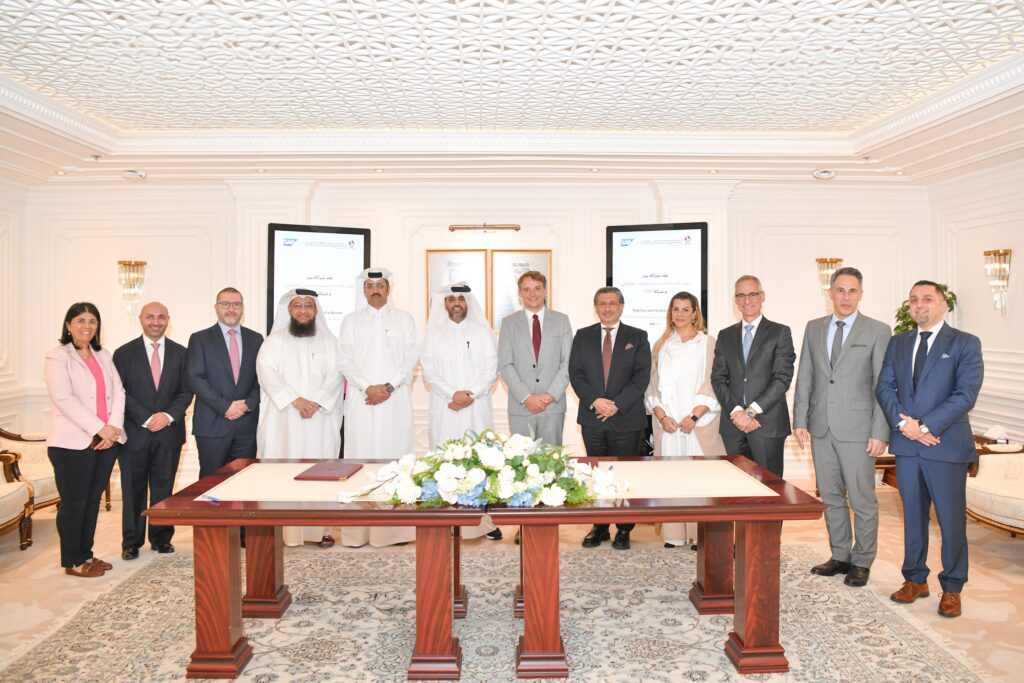Initiative will foster best practices and new approaches to enhance skills development, employee experience, and job satisfaction for government workers, in alignment with Qatar Vision 2030
Doha, Qatar — 30 January, 2024 — The Civil Service and Government Bureau (CGB) and global technology company SAP announced a comprehensive phased transformation of the human resources management system for Qatar’s public sector. Leveraging cloud computing and advanced technologies such as generative AI, the digital transformation is set to benefit more than 85,000 government workers once all stages are complete, thanks to its novel approaches to human resource management, enhanced employee engagement and hire-to-retire career planning.
In the initial implementation phases, CGB will upgrade and transition its core HR functions and payroll to the cloud through RISE with SAP; enhance its customized Mawared HR system; and implement SAP SuccessFactors to create a unified, data-centric, end-to-end HR solution.

Hassan Al-Khaja, Director of Information Technology, Civil Service and Government Development Bureau, commented:“In creating this digital roadmap, we focused on how we could leverage technology to implement best practices across all government departments. Our aim was to unify and automate processes, boost system and employee performance, simplify procedures and policies for everyone involved, and, ultimately, improve the entire hire-to-retire journey. Having a motivated and trained workforce is key to delivering exceptional services to the public and supports the aims of Qatar Vision 2030. Moreover, the system is scalable, flexible and paves the way for further innovation, taking into account the long-term CGB vision and future government trends.”
The integrated HR system will be agile and scalable for different government entities, will offer total workforce visibility, and will be fully digitalized, localized and compliant with Qatar regulations. The upgraded system features include employee and manager self-service functions and HR helpdesk, as well as automated HR operation processes and intelligent HR technologies to accelerate the government’s talent-management agenda. In addition, the fully integrated system will deliver role-based real-time reporting and advanced analytics, trends analysis, people data and insights (operation and experience data) to enable effective and agile decision making.
Alaa Jaber, Managing Director, SAP Qatar and Fast Growth Markets, said, “The CGB and SAP have been in partnership for more than a decade, working very closely on Mawared, the government’s HR system. With the new digital roadmap, more comprehensive cloud-based solutions and innovative features will be implemented to ensure an effective digital transformation that supports an empowered and engaged workforce. The solutions will provide a consistent and engaging experience for candidates, employees, managers and HR professionals, while also enabling the collection of accurate and useful data and trends analysis for workforce planning.”
To further enhance services for the public sector and ensure they are fully equipped with the skills needed to support a digital economy, CGB and SAP are collaborating on the Public Sector HR Innovation Center. This will comprise three main sections, namely, a briefing center that will showcase innovations and CGB achievements; an incubation center where parties can collaborate to formulate and build on novel ideas; and a training center and auditorium that will also host events, speakers and roundtables.
Several focus areas have been identified by CGB and SAP as priorities for the center, including leveraging the metaverse for training and collaboration, exploring how AI can benefit public sector HR, determining the most effective means of implementing nationalization policies, establishing awards to recognize exceptional new ideas, and arranging conferences to encourage conversations and collaboration on vital issues in the field of human capital today.
-Ends-